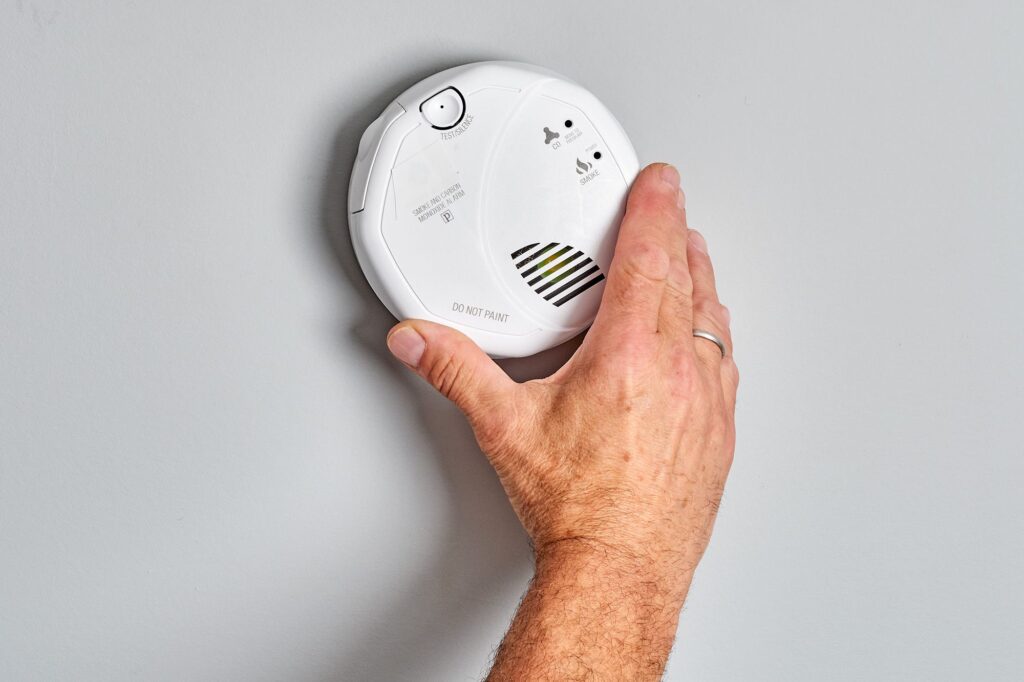One device that is an essential part of every American household is a smoke detector. But a lot of Americans don’t necessarily pay heed to these devices as much as they should. People assume that once it’s installed it will now do the work when needed, but what they forget it from time to time they should test out the some detector to see if it’s still working.
Most smoke detectors have a life of anything between 5 to 10 years after which they should ideally be replaced. Other than that, smoke detectors also come in wired and battery operated variants – the battery ones being wireless. Wireless devices are almost always cool and super convenient to have in your home, except when it comes to smoke detectors.
How Wireless Smoke Detectors Aren’t Useful
Wireless smoke and carbon monoxide detectors may seem pretty great to install around your home because it wouldn’t require much effort or the need for a professional to do the installation. So what’s the problem then?
Battery Problems
Wireless smoke detectors are battery oriented. Before placing the device into its mounting plate on the wall you just have to pop in a battery and put the smoke detector in its plate. And it’s ready to work! Except for when the battery runs out and you don’t even realize it.
The problem with wireless smoke detectors is the battery. People often forget to replace them, so when in the off chance a fire actually starts somewhere in the house, the smoke detector isn’t functional and can’t catch any potential hazards. This is why home fires and kitchen fires are quite common – because people forget to replace the battery.
No Interconnectivity
Another major issue with wireless smoke detectors is the fact that each device works individually. If the kitchen smoke detector detects any problem it would sound the alarm, but only the smoke detector in the kitchen would be the one ringing. People may not be able to hear just one device if they’re on the upper level of the house, or in the shower for instance. And once again this is how fires spread fast, because wireless smoke detectors aren’t effective enough to grab attention.
With wired smoke detectors on the other hand, sure installation would take some effort and maybe the assistance of a professional, but their interconnectivity is what makes them effective. If one alarm goes off, they all do.
How Can They Be Made More Effective
If we were to offer our two cents on the matter then wired smoke detectors should be preferred any day over wireless ones. But everyone has their reasons and preferences of course. So what do you do now that you already have the wireless ones?
Well, here’s a few facts that the National Fire Protection Association (NFPA) states that all homeowners should follow when it comes to smoke detectors in general.
- A laboratory label on the box of the smoke detector would ensure that the device has been tested thoroughly. Make sure that your wireless smoke detector at least has a laboratory label.
- When placing smoke detectors in any room they should always be installed on the ceiling. In a case where the walls are high, then 12 inches away from the ceiling.
- Install smoke detectors in every bedroom, the stairwell, basements and attics and living room.
- As for the kitchen, smoke detectors should always be placed at least 10 feet away from cooking appliances to minimize the problem of false alarms.
Following these guidelines as dictated by the NFPA might just make the wireless smoke detector useful.
Know Your Type
Wired or wireless, before any of that you must know the type of smoke detector you plan on purchasing. There are ideally 2 types of smoke detectors: Ionization detectors, which can detect smaller fire particles of flames, and then there are Photoelectric detectors, which in turn can pick up on fast burning, smoldering fires.
So how does that work? How do you know which one to install in your home or which one is more efficient? It is always recommended to get both types for your homes, and an added carbon monoxide detector too because gas leaks such as poisonous ones like that of carbon monoxide are equally dangerous for people as well as any animals’ health.
But here’s a little secret we’ll let you in on. A smart smoke detector, be it a wired or wireless one, combines the features of both ionization and photoelectric detectors. What it also includes is a carbon monoxide detector as well – so it does the work of what 3 different devices would do otherwise.
You can find some smart smoke detectors here at FirstEnergy Home’s website: www.firstenergyhome.com. Head on over to their Smart Home catalogue and you’ll find some affordable smart smoke detectors to install in your home.
